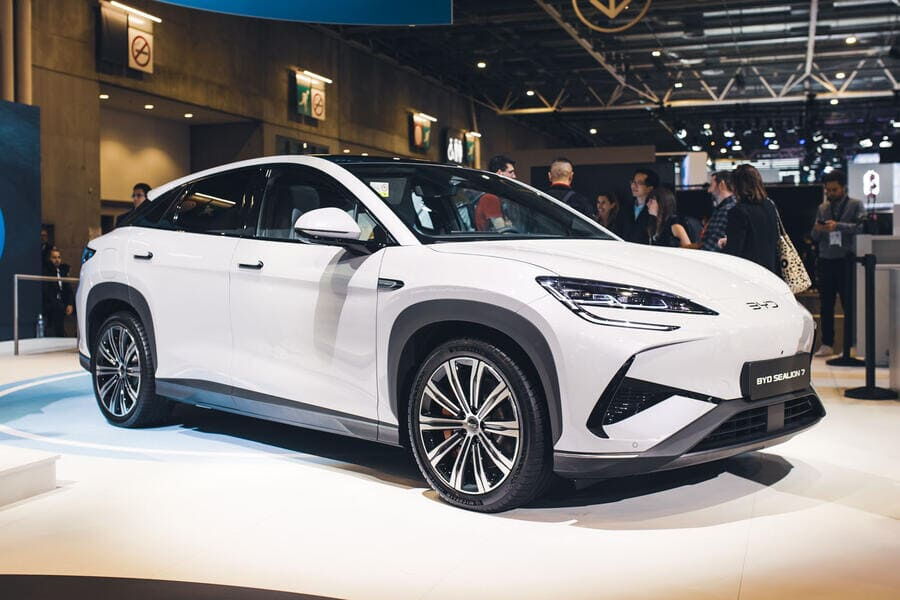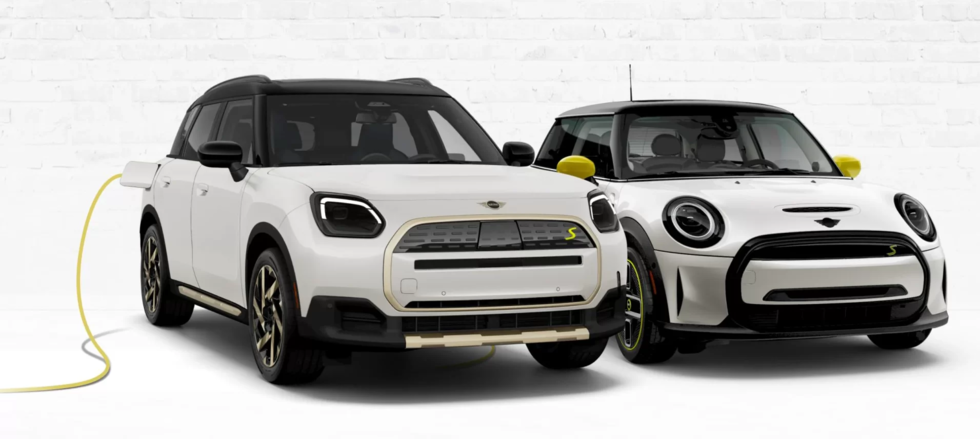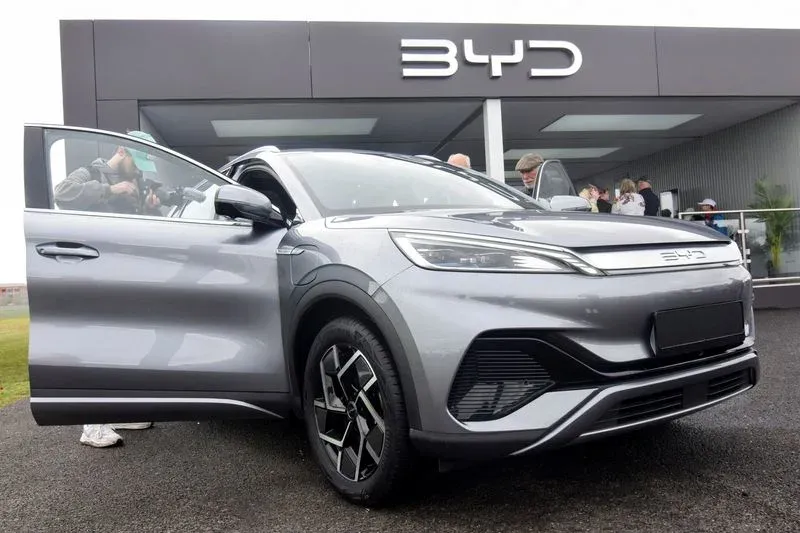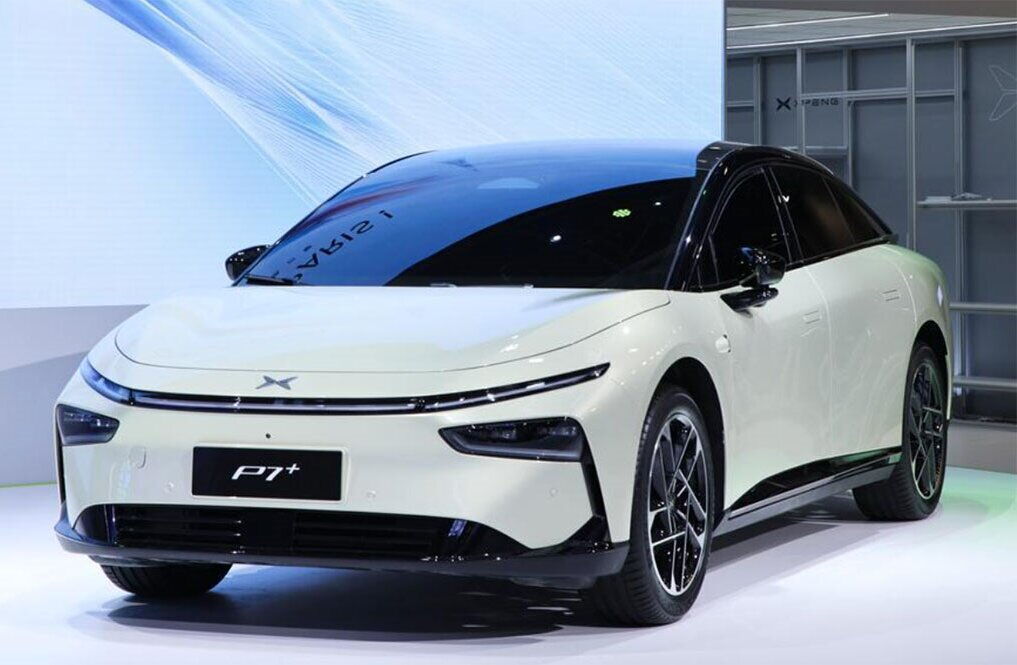Paris Motor Show 2024 Highlights: Surge in Chinese Electric Vehicles
On this page
At this year's Paris Motor Show, two significant trends are emerging: first, Chinese brands dominate nearly half of the exhibition; second, traditional European major brands are increasingly focusing on the low-cost vehicle market. From Renault to Citroën, and Volkswagen to BMW, these once-luxury brands are now shifting their attention to more affordable models to establish a foothold in this competitive sector. What are the underlying reasons for this shift?
 To understand the current landscape, we must first examine the state of the European electric vehicle market. While EVs are experiencing substantial growth worldwide, their high prices pose a significant barrier to adoption in Europe. Data reveals that the average price of electric vehicles in the region hovers around €45,000, which is a hefty expense for most consumers. Additionally, rising energy prices due to geopolitical tensions and competition from Chinese brands are critical factors limiting the growth of high-priced vehicles in Europe.
To understand the current landscape, we must first examine the state of the European electric vehicle market. While EVs are experiencing substantial growth worldwide, their high prices pose a significant barrier to adoption in Europe. Data reveals that the average price of electric vehicles in the region hovers around €45,000, which is a hefty expense for most consumers. Additionally, rising energy prices due to geopolitical tensions and competition from Chinese brands are critical factors limiting the growth of high-priced vehicles in Europe.
In response, analysts project that the low-cost car market will maintain a compound annual growth rate (CAGR) of 5.5%, with the global market size expected to reach approximately $1.2 trillion by 2025.
Renault CEO Luca de Meo noted at the motor show that the lack of basic EV charging infrastructure, coupled with price fluctuations, has created a challenging environment for EVs in Europe. Nevertheless, Renault and its affiliates are working diligently to reduce costs and attract more consumers.
At the Paris Motor Show, Renault unveiled several new models, including the R4, R5, and the entry-level Dacia Bigster. These vehicles are notably affordable, priced at least €10,000 lower than the European average for EVs, with some compact cars like the Twingo expected to be priced under €20,000. Citroën also introduced an entry-level version of the C3 compact electric car priced below €20,000, slated for release in the first half of next year.
Volkswagen introduced the Elroq, a plug-in hybrid SUV priced significantly below the average for new energy vehicles at €33,000, and plans to launch the ID.2all, a small car priced below €25,000, by the end of next year. BMW showcased its MINI electric models, developed and manufactured in China, including a high-performance JCW version and the Aceman SUV, all competitively priced. Notably, many MINI models are developed in collaboration with Great Wall Motors and produced in China.

These low-cost vehicles not only offer price advantages but also deliver impressive performance, range, and intelligence. Equipped with advanced battery technology and motor systems, they significantly enhance range and power. Additionally, these models feature smart configurations, such as advanced driver-assistance systems and connectivity options, improving convenience and safety for drivers.
Chinese automotive brands possess unique advantages in cost control and supply chain management, enabling them to offer electric vehicles at competitive prices without sacrificing quality. As European consumers increasingly embrace Chinese-made electric vehicles, the market share of these brands continues to grow.
For instance, BYD, a leader in China's new energy vehicle sector, showcased several electric and plug-in hybrid models at the Paris Motor Show. The Yangwang U8 exemplifies BYD's ambition to penetrate the high-end market with its advanced technology and competitive pricing. Xpeng Motors has also launched pre-sales for its newly released P7+ sedan, starting at ¥209,800 (approximately €30,000), which is the long-wheelbase version of its €50,000 P7 model, directly competing with mid-sized luxury vehicles from BMW and Mercedes. These initiatives underscore the strength of Chinese automotive brands and establish a solid foundation for their expansion in the European market.
 To understand the current landscape, we must first examine the state of the European electric vehicle market. While EVs are experiencing substantial growth worldwide, their high prices pose a significant barrier to adoption in Europe. Data reveals that the average price of electric vehicles in the region hovers around €45,000, which is a hefty expense for most consumers. Additionally, rising energy prices due to geopolitical tensions and competition from Chinese brands are critical factors limiting the growth of high-priced vehicles in Europe.
To understand the current landscape, we must first examine the state of the European electric vehicle market. While EVs are experiencing substantial growth worldwide, their high prices pose a significant barrier to adoption in Europe. Data reveals that the average price of electric vehicles in the region hovers around €45,000, which is a hefty expense for most consumers. Additionally, rising energy prices due to geopolitical tensions and competition from Chinese brands are critical factors limiting the growth of high-priced vehicles in Europe.In response, analysts project that the low-cost car market will maintain a compound annual growth rate (CAGR) of 5.5%, with the global market size expected to reach approximately $1.2 trillion by 2025.
Renault CEO Luca de Meo noted at the motor show that the lack of basic EV charging infrastructure, coupled with price fluctuations, has created a challenging environment for EVs in Europe. Nevertheless, Renault and its affiliates are working diligently to reduce costs and attract more consumers.
At the Paris Motor Show, Renault unveiled several new models, including the R4, R5, and the entry-level Dacia Bigster. These vehicles are notably affordable, priced at least €10,000 lower than the European average for EVs, with some compact cars like the Twingo expected to be priced under €20,000. Citroën also introduced an entry-level version of the C3 compact electric car priced below €20,000, slated for release in the first half of next year.
Volkswagen introduced the Elroq, a plug-in hybrid SUV priced significantly below the average for new energy vehicles at €33,000, and plans to launch the ID.2all, a small car priced below €25,000, by the end of next year. BMW showcased its MINI electric models, developed and manufactured in China, including a high-performance JCW version and the Aceman SUV, all competitively priced. Notably, many MINI models are developed in collaboration with Great Wall Motors and produced in China.

These low-cost vehicles not only offer price advantages but also deliver impressive performance, range, and intelligence. Equipped with advanced battery technology and motor systems, they significantly enhance range and power. Additionally, these models feature smart configurations, such as advanced driver-assistance systems and connectivity options, improving convenience and safety for drivers.

Chinese automotive brands possess unique advantages in cost control and supply chain management, enabling them to offer electric vehicles at competitive prices without sacrificing quality. As European consumers increasingly embrace Chinese-made electric vehicles, the market share of these brands continues to grow.
For instance, BYD, a leader in China's new energy vehicle sector, showcased several electric and plug-in hybrid models at the Paris Motor Show. The Yangwang U8 exemplifies BYD's ambition to penetrate the high-end market with its advanced technology and competitive pricing. Xpeng Motors has also launched pre-sales for its newly released P7+ sedan, starting at ¥209,800 (approximately €30,000), which is the long-wheelbase version of its €50,000 P7 model, directly competing with mid-sized luxury vehicles from BMW and Mercedes. These initiatives underscore the strength of Chinese automotive brands and establish a solid foundation for their expansion in the European market.

